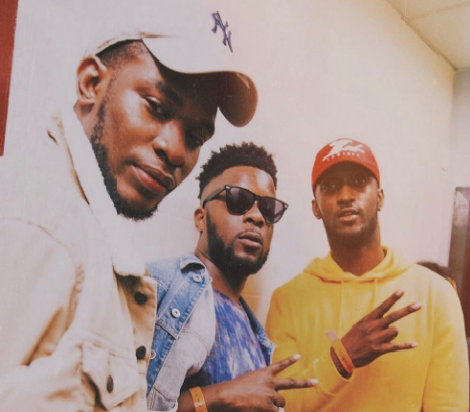Words by Ehis “Combs” Ohunyon
Music fans will remember how it was years back when having your single aired on radio was the holy grail for every upcoming artist. Radio stations were home to budding talents who lined up outside the gates and in the reception halls to submit their demo CDs with the hope of getting an OAP or deejay willing to give them a listen.
For some budding artists, the goal was to get on the radio by any means possible, ranging from spending your whole day outside the gates of the station, to being really friendly to that rude receptionist because if you weren’t, your tape could be forgotten in the dark corners of the station’s library. Those stories were largely circumstantial but almost every time, nearly without fail, getting on the radio involved some form of payola. You see, getting your song on radio was the first step to becoming a celebrity in the industry and radio personalities became demi-gods who could decide the fate of your music career.
Many will recollect when Ruggedman burst onto the scene with his controversial single, ‘Ehen’ dissing a couple of Kennis Music artists. What soon followed was claims that the honchos at Kennis, who were also radio personalities, had made moves to stop his music from getting played across stations. This soon gave birth to “Big Bros” with OAPs like Grand Master Lee (GML) providing a platform for Rugged to soar. Back then, record labels had their go-to radio stations for radio tours when making promotion plans and independent artists had their go-to personalities and deejays as well. It was an expensive route to the top but it was the only way at the time.
Apparently, as the radio single grew in influence, it began to have an effect on the mind of the listeners. A pattern in the songs being churned out began to form such that well-crafted songs with messages, but varying in rhythm and tempo to those that were trending, were almost never considered groovy enough for the radio. This, in many ways, birthed the mediocrity and lack of originality in the industry as many didn’t see the need to stretch their creative limits anymore when all that was needed to get them some minutes of fame was the same template of every other hit single.
That’s also part of the reason why major labels over the years have held back the promotion of certain songs from their artists as they considered them not radio-worthy, so artists have had to reshape their sound just to align with the trend. Recall that creative differences was one of the reasons why Milli was let off Chocolate City, after he was reportedly asked to conform to the mainstream. But now artists like Milli, Maleek Berry and Nonso Amadi are commanding a large following on their various platforms, even without major songs on the radio charts.

Milli’s new EP “Childish”
A lot has changed in 2017 – technology through the internet has provided the same platform for every artist in every genre to be heard. Even though getting your song aired on radio is still a big deal, as it remains the traditional and probably the most effective means to reach a larger audience faster within our shores, it however no longer wields those exclusive powers like in the past as the internet has provided a way out. A way that has consequently opened more windows for opportunities and more channels for artists.
Talented rapper Poe recently got signed onto Mavin Record, this got a lot of online buzz as many saw it as a victory for those who hitherto had been tagged ‘Twitter rappers’. Poe earned his stripes largely online, his songs were critically acclaimed by fans and hip-hop lovers and the wise move that saw him affiliate with the rap group Show Dem Camp opened him up to eventually getting signed onto arguably the biggest label in the land.
Another who over the years struggled to get on the radio but now enjoys relative success online is rapper A-Q. The Hustle Ink chief has made good use of what the internet has to offer to reshape his career, notice how he has been able to intentionally market his last two albums even without a breakout radio single. His promotion route is one that a lot of artists could emulate and has earned props from industry greats like Don Jazzy and M.I. Also, A-Q’s being able to organize a hip-hop concert two years ago through his considerable number of online fans is one that even some big name acts would envy.
But don’t get me wrong, radio tours remain crucial in the itinerary of a successful artist. Steady rotation across the airwaves is a testament of one’s popularity and the extent to which your song has ‘blown’. The OAP still plays a role in how far your career can go within a short period. But we cannot deny that progress has been made over the years and that access to online platforms for streaming and downloads has bridged the gap to success. Social media has brought the fans closer to the idols, more people are confident of running an indie label as budgeting costs covering promotion and distribution of songs have been sliced. The music is getting better, and in turn, the radio now comes to the artist.
By bypassing the pressure of the radio single, artists now have more artistic control and even though the goal remains becoming a household name and making a success of your music, they now recognise that one doesn’t necessarily have to fit in to be appreciated.
Ehis “Combs” Ohunyon is a Lagos-based realtor, asset valuer and writer


